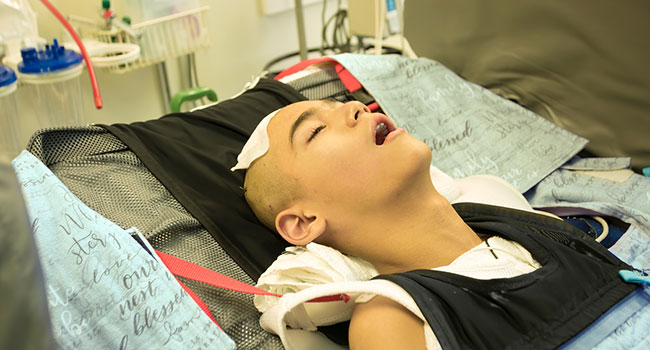Sniff Test Predicts Recovery in Severe Traumatic Brain Injuries
Jun 8, 2020 by Iris Dawn TabangcoraA new study found that conducting a simple 'sniff test' on unconscious patients with severe traumatic brain injury can predict whether or not they will regain consciousness.
The study involved patients with minimal to no awareness of their surroundings. 100% of patients who reacted to the sniff test were able to regain consciousness. Moreover, 91% of these patients were still alive three and a half years after injury.

Diagnosis predicting recovery is wrong 40% of the time and this means poor patient outcomes. Treatment strategies like pain management and end-of-life decisions may be affected as a vegetative patient has a different outlook from a minimally conscious patient.
The study involved 43 patients with severe traumatic brain injury. Patients were presented with a different range of smells and the volume of breath through the nose was measured by a nasal cannula. 100% of vegetative patients who reacted to smells eventually regained consciousness.
During the trial, a combination of pleasant (e.g. shampoo) and unpleasant (e.g. rotten fish) smells were introduced at random ten times for five seconds each. A jar with no smell at all was also presented. The volume of air sniffed by patients was then measured.
The sense of smell is operated by structures found deep in the brain. These structures automatically change the way we sniff depending on the introduced smell. For example, when encountering an unpleasant smell, humans take shorter and shallower breaths. This happens in both waking and sleeping states of consciousness.
Researchers found that minimally conscious patients sniffed less when presented with smells, while vegetative patients had varied responses. These responses are reflective of the function of deep structures in the brain even when no other signs of consciousness are present.
Researchers recommend including this test as a tool for assessing the likelihood of recovery in patients with disorders of consciousness. It is astonishing to discover a test that can with 100% accuracy predict whether an unconscious patient will revive.
Learn more at
MEDPAGETODAY.ORG
MEDPAGETODAY.ORG
Next »
Without participants there can be no clinical trials.
Without clinical trials there will be no new treatments.
Signup and be matched to trials near you
This free service will notify you of current and future clinical trial matches.
Without clinical trials there will be no new treatments.
Signup and be matched to trials near you
This free service will notify you of current and future clinical trial matches.
